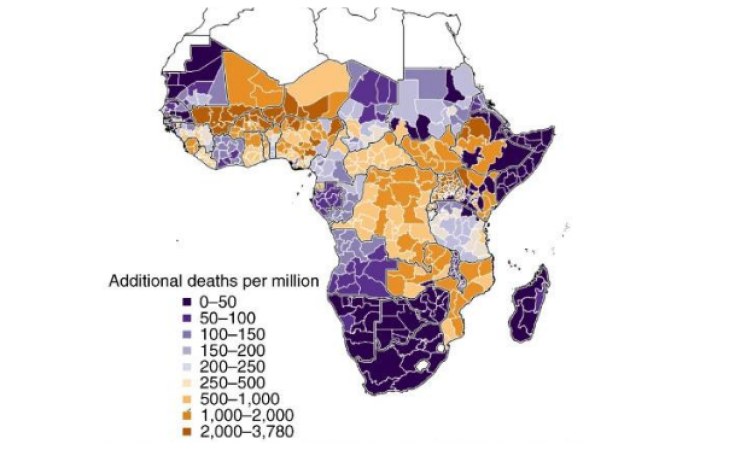Cape Town — Malaria deaths in Africa could double this year if the coronavirus pandemic is allowed to disrupt malaria prevention and treatment initiatives, say researchers from Imperial College, London.
In an article published Friday in the journal Nature Medicine, the college's Covid-19 Response Team says if mosquito nets are not distributed and other interventions – including testing for and treating malaria, and giving children anti-malarial medicines – are halved over six months, there could be 779,000 malaria deaths in sub-Saharan Africa over a 12-month period.
The researchers echo warnings from others, including the World Health Organization, of the threat that the pandemic poses to malaria control activities such as the delivery of insecticidal nets.
They estimate that a record 228 million long-lasting insecticidal nets (LLINs) were due to be delivered across Sub-Saharan Africa this year, more than ever before, and called for "swift action" to prevent malaria and Covid-19 from overwhelming health systems.
Responding to the survey, the executive director of Malaria No More UK, James Whiting, said it was "absolutely vital" to continue distributing nets.
" Protecting people against Covid-19 cannot be pursued in isolation," he added. "Governments must see maintaining efforts against malaria as a core part of pandemic preparedness or risk a catastrophic domino effect."
The Imperial College researchers say that if malaria tests are unavailable, measures aimed at young Africans could help: "Presumptive malaria treatment of 70 percent of children under the age of 15, who present with a fever, could save 178,000 lives in the next year."
" Currently, it is unclear how Covid -19 will spread in Africa," the researchers found – although under all the scenarios they studied, they expect "substantial additional deaths from malaria."
The danger is "especially evident" in Nigeria, they add, where the potential disruption overlaps with the malaria transmission season, which peaks around September. In his response, Okefu Oyale Okoko, a leading official of the Nigerian health ministry's Malaria Elimination Programme, called for interventions against malaria to continue " in order to not only sustain the gains already made in malaria elimination but ensure we do not have a resurgence in malaria."


